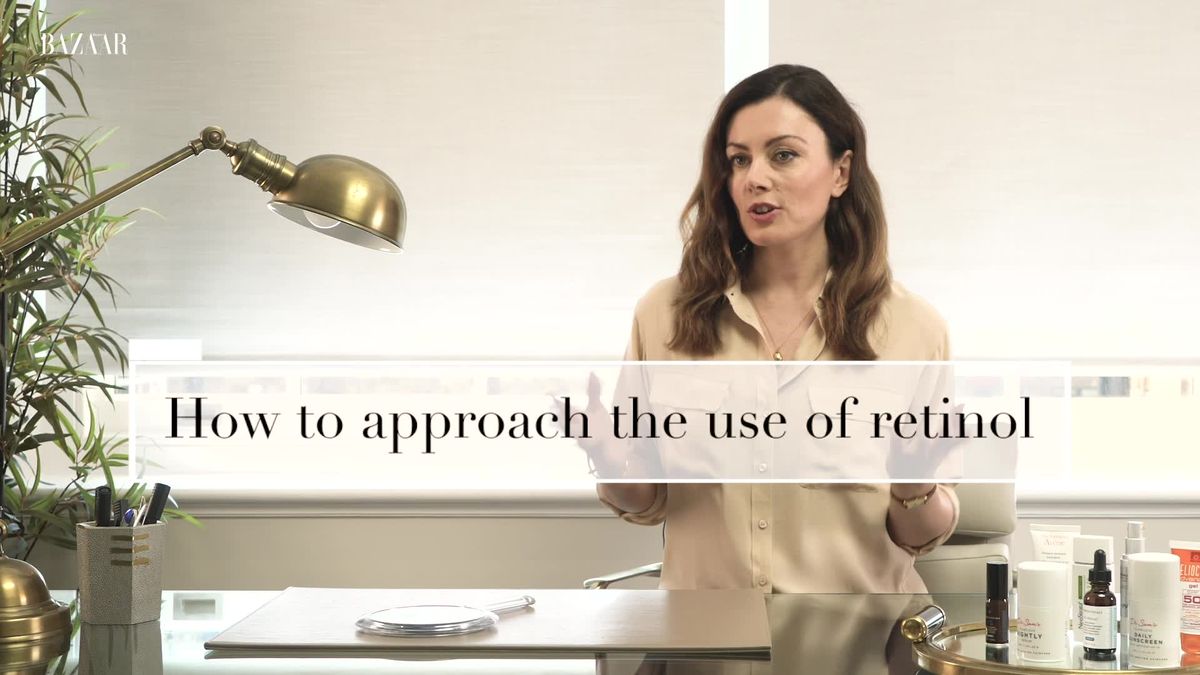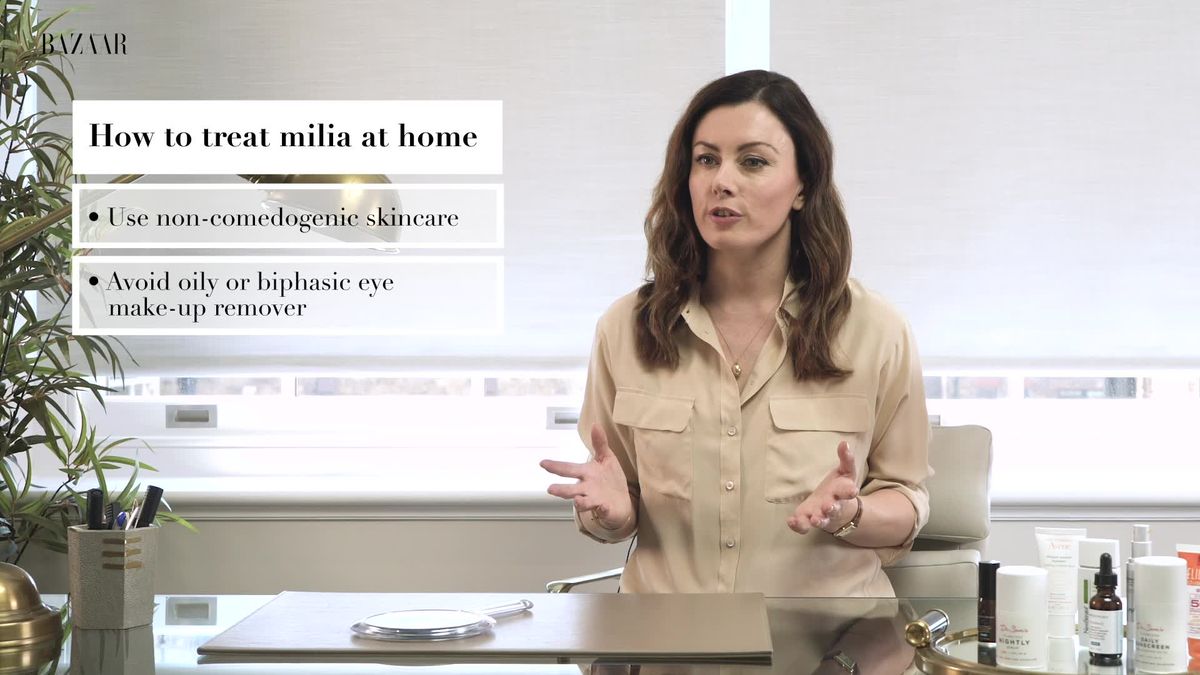Susceptible to sensitivity and showing visible signs of fatigue, “our eyes reveal a lot about our overall health and wellbeing,” the cosmetic eye surgeon Dr Elizabeth Hawkes tells Bazaar.
Some of the biggest concerns she sees in clinic relate to dark circles and baggy skin beneath the eyes, hooded eyelids above, and milia spots top and bottom. But it’s not all cosmetic; dry eyes are a commonly reported irritation (as much as a contributor to the feel and appearance of tiredness).
“The skin around your eyes is unique and therefore requires very special care,” she says. “It’s a very delicate area”. Here, the oculoplastic surgeon reveals everything she does to care for her eye health, resulting in a fresher feel and look.
1/ Use a dedicated eye cream, not just moisturiser
“The skin around the eyes is one of the first places to show the signs of ageing as it is so fragile; it needs a bit of extra TLC that face creams just won’t provide,” says Dr Hawkes.
“There are many eye creams out there that are specially formulated to lift and sculpt. Make sure to use serums and light creams that are formulated for daily use and don’t clog up glands.”
“Be gentle when applying an eye product. It should be applied along the orbital bone – the eye socket – and not on the eyelids too close to the lash lines. Using your ring finger, work from the inner corners of the eyes outwards with a gentle patting motion.”
2/ Look for active ingredients that target your concerns
“For me, retinoids are a must when it comes to treating wrinkles around the eyes. Retinoids work by prompting surface skin cells to turn over quickly, making way for fresh skin underneath. It helps to slow the breakdown of collagen and thickens the deeper layer of skin to help prevent wrinkles.”
“I also look for hyaluronic acid, an instant hydrator. It acts like a sponge in your skin, pulling in water to plump fine lines and smooth skin.
“If dark circles are a concern, use a vitamin C-based cream during the day. While dark circles aren’t always a sign of tiredness, as they can be due to other factors such as genetics or allergies, you can help reduce their appearance by using topical creams for brightening.
“In addition, you must make sure you wear a broad spectrum SPF to protect the skin during the day.”
3/ Wear UV-protective sunglasses
“Just like you protect your skin from UV rays you need to protect your eyes too, so make sure you buy UV-protective sunglasses from a reputable seller,” says Dr Hawkes. “I buy oversized glasses that cover the eyes and surrounding areas and don’t slip down. This helps to protect not only the eye itself but also the delicate skin around it.
“UV radiation can not only damage the skin surrounding the eye area, it can also damage the cornea, lenses and other parts of the eye itself. UV exposure can contribute to some types of cataracts, solar retinopathy and pterygium. Protecting the eyes from this with sunglasses that have a UV 400 protection is essential for eye health reasons as much as preventing premature ageing.”
4/ Never sleep in eyemake-up
“As the under-eye area is extremely delicate, sleeping in your make-up may increase the chance of products dripping into the eye itself, or sitting on the lid for too long and causing irritation,” Dr Hawkes explains.
“Sleeping in your make-up may also increase your chances of seeing milia, which are small white bumps that appear when keratin, a protein that your body produces naturally, gets trapped beneath the skin’s surface.
“Eyelids are also a common location for contact dermatitis [aka eye eczema], so to help prevent dry eyelids it’s very important to keep them clean.”
5/ Use lubricating eye drops
“When you’re tired, you are prone to rubbing your eyes, which can irritate them and also risks causing damage to the eye itself or surrounding areas,” says Dr Hawkes.
“I always recommend using some lubricating eye drops, which can really help your eyes look brighter, especially when you’re feeling a little more tired than usual.
“You can buy these over the counter, helping to lubricate eyes so they’re not dry, itchy and sore.
“Eyes sometimes dry out at night due to incomplete lid closure. As well as using eye drops just before bed, a good way to treat dry eyes at night is to use a humidifier, which adds extra moisture to the air.”






